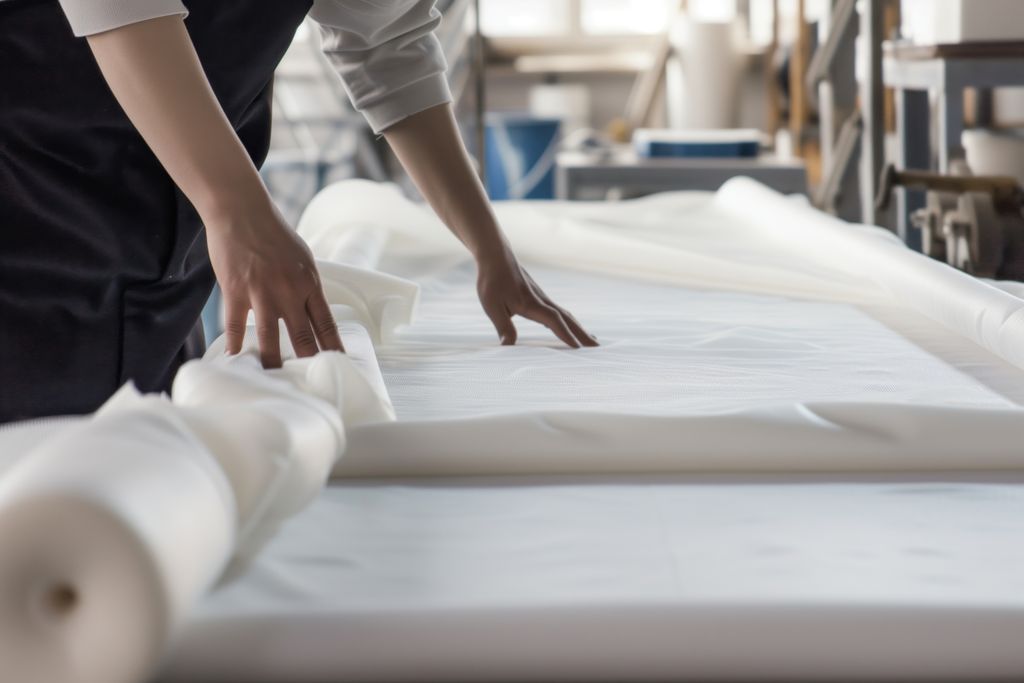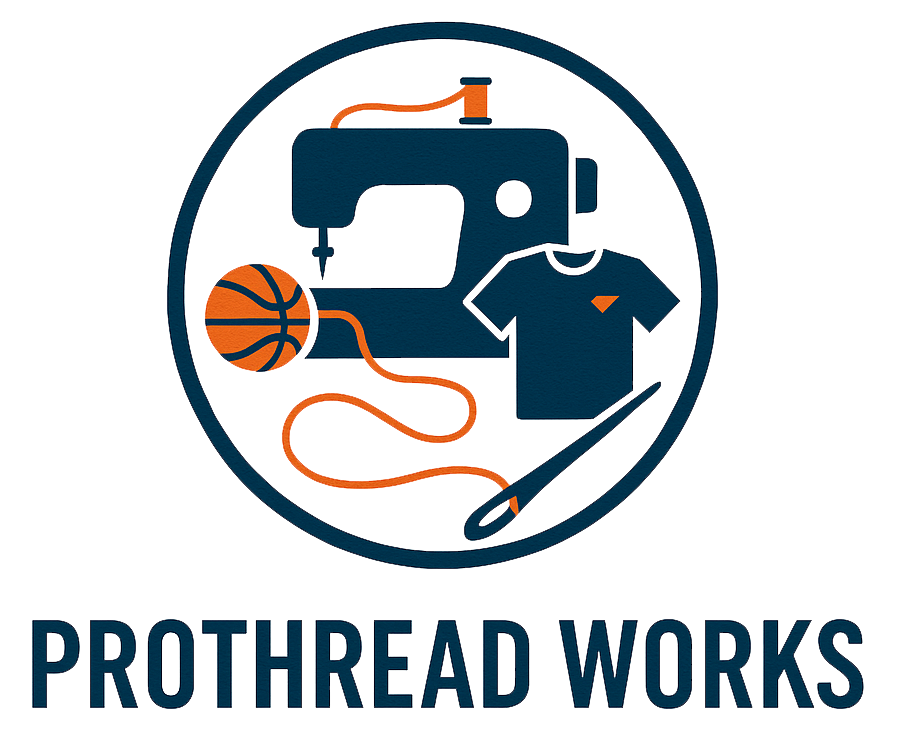Getting your apparel off the ground requires reliable suppliers who can support smaller production runs without compromising quality. In today’s growing activewear market, startups and small brands often face hurdles like low minimum order quantities (MOQs), tight budgets, and a need for standout performance fabrics.
When it comes to sourcing high-quality textiles, sportswear fabric manufacturers that align with these needs can make all the difference. In this post, we’ll walk through the growing sportswear industry, what to look for in a good partner, and seven trusted options to help you launch and scale with confidence.
Why Sourcing from Reputable Sportswear Fabric Manufacturers Matters
Reliable sportswear fabric manufacturers are the backbone of any activewear line. If you partner with a subpar supplier, you risk encountering issues such as inconsistent fabric compositions, color variations, or even long delays. As a startup, this could translate into unhappy customers and damage to your brand’s reputation.
Beyond just quality and consistency, finding sportswear fabric manufacturers that offer low or flexible MOQs can help keep your early-stage production costs manageable. Many manufacturers cater to larger orders, but there are specialists who understand that small brands often need smaller runs. This is essential because it allows you to test designs, get feedback, and refine your product line without committing to large volumes of inventory upfront.
The Global Market Outlook for Sportswear Fabric Manufacturers
In recent years, the global sportswear market has experienced a massive surge. According to recent data, the market was estimated at USD 335.92 billion in 2023 and is projected to reach USD 646.01 billion by 2030 (source: grandviewresearch.com).
This expansion reflects rising health awareness, increased online sales, and the rapid growth of fitness trends across the globe. Approximately 45% of these product sales are now made on e-commerce platforms, providing a prime opportunity for small brands to carve out a niche and market directly to their customers.
Sustainability is also shaping new demand for sportswear fabric manufacturers. Analysts predict that eco-friendly textiles could account for up to 20% of the sportswear market by 2025 (source: gitnux.org), driven by the growing popularity of recycled polyester and biodegradable materials.
Many major players—like Nike, Inc. and Adidas AG—are responding by investing heavily in sustainable production methods. This industry-wide shift opens doors for small brands that prioritize environmentally sound fabrics.

Key Factors to Consider When Evaluating Sportswear Fabric Manufacturers
Choosing sportswear fabric manufacturers for your custom sportswear business goes beyond just finding the right price point. Here are four considerations to keep in mind:
- MOQ Flexibility
Low minimum order quantity (MOQ) is crucial for startups who need to produce smaller runs. This helps balance inventory management and cash flow, allowing you to test new designs or colorways without overextending your budget. - Fabric Types and Properties
The best sportswear fabrics are those that are moisture-wicking, durable, and comfortable. Moisture-wicking fabrics, for example, are popular due to rising health awareness, which boosted global demand for these materials by 9% in 2023 (source: zipdo.co). Look for suppliers that specialize in technical textiles like polyester blends, spandex, and other performance-oriented materials. - Sustainability Practices
There has been a 12% increase in the use of biodegradable materials forecast through 2026 (source: wifitalents.com). If eco-friendly production aligns with your brand positioning, research whether your manufacturer uses recycled or organic fibers. This can attract customers who value ethical and sustainable products. - Supply Chain Management and Communication
Effective supply chain management is crucial. You’ll want transparent communication and documented processes, especially for international orders. Tools like Techpacker or Adobe Illustrator can help you develop clear tech packs and design specs, reducing confusion about your orders.
7 Trusted Sportswear Fabric Manufacturers for Startups and Small Brands
Below are seven recommended sportswear fabric manufacturers who understand the unique needs of smaller-scale brands. They offer varying MOQs, sustainable materials, and expertise in technical fabrics. Explore these options based on your production goals and brand ethos.
1. PerformanceTex & Co. and SilkSense Group
PerformanceTex & Co. is known for its flexible MOQ requirements, making it easier for smaller labels to start production. Their range of breathable polyester blends and moisture-wicking fabrics has caught the attention of e-commerce sellers seeking high-performance material.
SilkSense Group, although best known for silk-based textiles, has expanded its portfolio in recent years to include innovative recycled polyester lines. Their integration of biodegradable materials aligns with the growing market shift toward sustainability. If you plan on highlighting eco-friendly attributes in your brand positioning, SilkSense is worth considering.
2. EcoThread Mills & Phoenix Active Fabrics
EcoThread Mills specializes in sustainable textiles made from organic cotton and recycled polyester. They employ a closed-loop process, which helps reduce water and energy usage during production. Startups looking to feature environmental responsibility in their marketing can benefit from EcoThread’s certifications and transparent manufacturing practices.
Phoenix Active Fabrics offers a variety of technical fabrics that cater to sports like running, soccer, and yoga. Their fabric library includes high-stretch spandex blends and temperature-regulating materials. Startups targeting different sports can easily source multiple specialized textiles from one supplier.
3. DynamicKnit and VitaFabrics
DynamicKnit operates primarily in the athletic compression industry, developing fabrics that enhance muscle support and reduce fatigue for athletes. If your brand focuses on performance wear, their emphasis on advanced weaving techniques is a top advantage.
VitaFabrics caters more to the leisure and athleisure segments, with comfortable knits designed for everyday active lifestyles. They have a balanced MOQ structure ranging from 300 to 500 yards, providing enough leeway to test small collections. This can be especially helpful for new founders wanting to keep initial runs limited yet still maintain professional product quality.
4. Tech Gear Textiles
Tech Gear Textiles focuses on technical solutions, such as moisture-wicking or waterproof fabrics. They use cutting-edge weaving and finishing processes, including 3D printing, which increased across the industry by 15% in 2023. Their advanced technologies can help smaller brands stand out with unique performance features on par with larger names like Columbia Sportswear Company or Fila, Inc.
Conclusion
Partnering with the right sportswear fabric manufacturers is a game-changer for startups and small brands. As the sportswear sector expands—forecasted to reach USD 646.01 billion by 2030—there is ample opportunity to stake your claim in this bustling marketplace. The key is to find suppliers that understand your need for low MOQs, consistent quality, and flexibility to test new products without high inventory risks.
With the continuing rise in sustainability and evolving technologies like 3D printing, sportswear fabric manufacturers are positioning themselves to support a new generation of activewear entrepreneurs. Whether you’re focusing on moisture-wicking apparel, compression garments, or eco-friendly yoga wear, the seven manufacturers mentioned above offer genuine promise for helping you launch and grow your custom sportswear line.
By prioritizing factors such as brand positioning, supply chain management, and fabric properties, you can build a resilient production model that sets your teamwear business up for long-term success.

